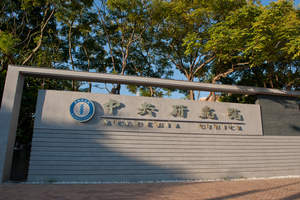TAIPEI, TAIWAN--(Marketwired - Feb 2, 2015) - Ambitious students are invited to apply to the Taiwan International Graduate Program (TIGP) in their choice of twelve fields that span the natural and physical sciences, as well as computational social networks. In the Taiwan International Graduate Program (TIGP) students will learn in an all-English teaching and research environment and enjoy access to world-class faculty and state-of-the-art research facilities at the renowned Academia Sinica and her partner universities.
TIGP, established with the support of Academia Sinica in 2002, offers highly specialized and interdisciplinary PhD programs in the domains of cutting-edge technologies and science. The Program offers all-English instructional and research environments, world-class faculty, and state-of-the-art facilities. Also, TIGP offers students various benefits, including a monthly stipend of NT$34,000 for up to 36 months, free Mandarin language courses at the entry level and a convenient fully-furnished dormitory for the first year. Furthermore, through Academia Sinica's substantial connections with first-rate institutions around the world, the TIGP is able to make arrangements for students to visit and conduct research in other renowned laboratories.
Twelve (12) interdisciplinary programs, in cooperation with 10 top domestic universities, are open for application for the 2015 fall semester. These interdisciplinary programs include: Chemical Biology and Molecular Biophysics, Molecular Science and Technology, Molecular and Biological Agricultural Sciences, Molecular and Cell Biology, Bioinformatics, Nano Science and Technology, Molecular Medicine, Earth System Science, Biodiversity, Interdisciplinary Neuroscience, Sustainable Chemical Science and Technology, and Social Networks and Human-Centered Computing. The application deadline is the 31st of March, 2015, and no application fee is required.
TIGP reflects the enthusiasm and commitment of Academia Sinica to facilitate the academic advancement of science and technology. During the current academic year, there are 456 students from 42 countries, making TIGP a truly international community. Every year, many students publish research papers in top scholarly journals, and many alumni go on to take up positions in world-renowned institutions. To date, a total of 172 students have completed the TIGP program's rigorous requirements and have obtained PhD degrees.
About TIGP
TIGP, which was founded in 2002, is a joint-effort of Academia Sinica and leading research universities in Taiwan. TIGP integrates first-class facilities with outstanding faculty to offer interdisciplinary PhD programs across a wide range of disciplines. All lessons are conducted in English. After completing the graduation requirements, students receive certificates from Academia Sinica and diplomas from the partner universities, which are all top academic universities in Taiwan.
About Academia Sinica
Funded by the Taiwan government, Academia Sinica is a leading research institution with a proud tradition and international recognition. Since its inception in 1928, Academia Sinica has established outstanding academic records in the domains of physical sciences, life sciences, social sciences and the humanities. The excellent achievement has been widely recognized by many international academic institutions around the world.
Apply online for TIGP before March 31, 2015 via TIGP online system.
For any question, please visit TIGP official website or contact TIGP Admission Office at: tigp@gate.sinica.edu.tw
Contact Information:
Press contact:
Katie Chen
Email:
